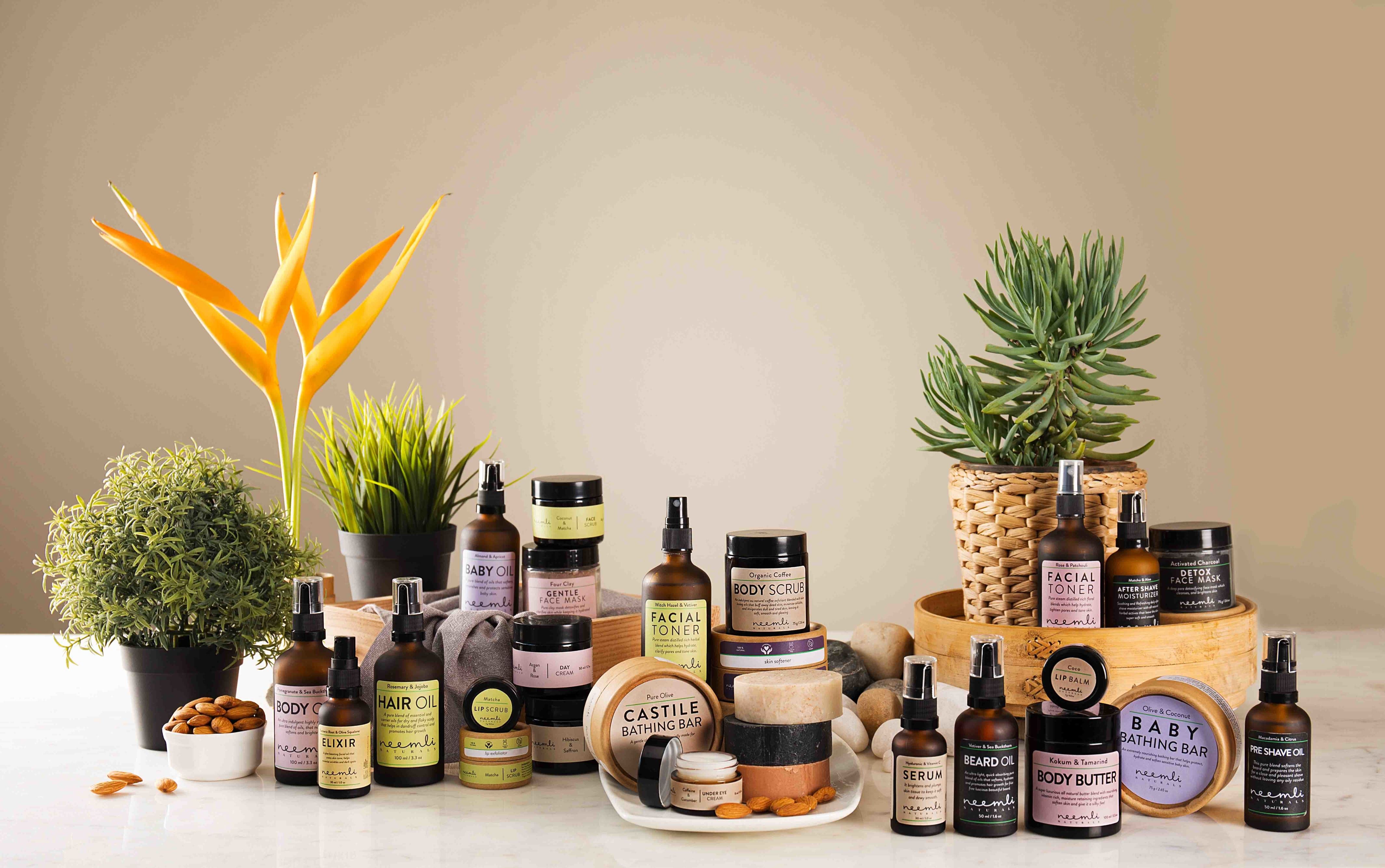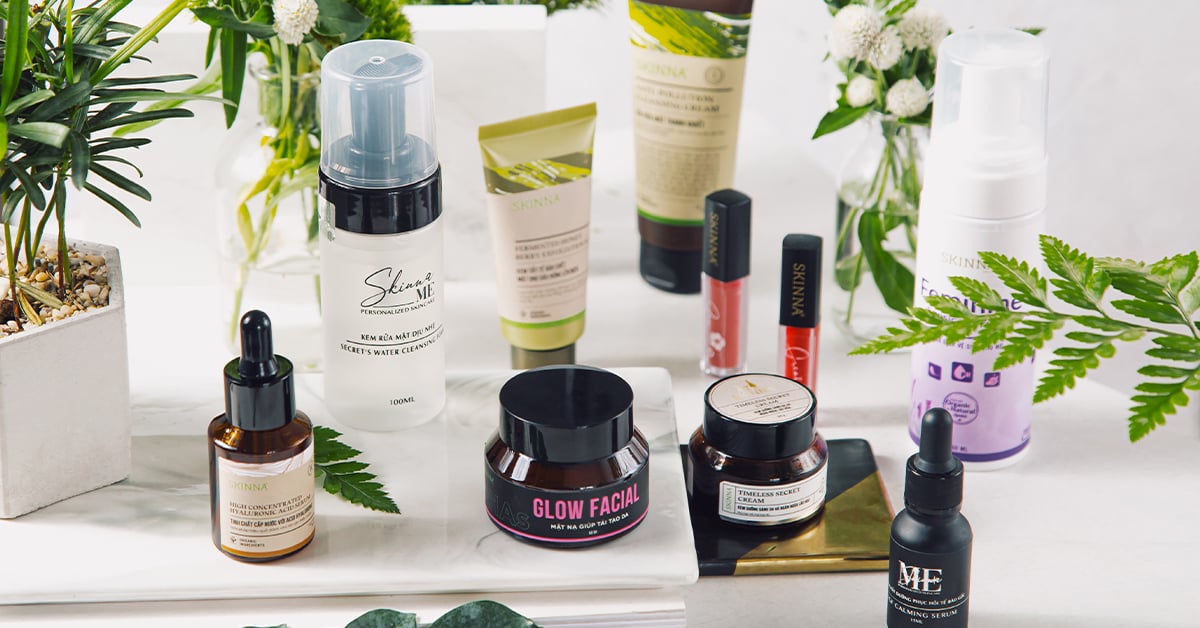Blog
Organic Skincare: What You Need to Know Before Buying
In recent years, organic skincare has gained significant attention from beauty enthusiasts, health-conscious consumers, and eco-conscious individuals alike. With the growing concern over the ingredients in conventional skincare products, many people are turning to organic options to nourish their skin naturally. But what exactly does “organic” mean when it comes to skincare? Is it always better than traditional products? And how can you choose the best organic skincare products for your specific needs?
In this article, we’ll break down everything you need to know about organic skincare, from the benefits and potential drawbacks to how to pick the best products. Whether you’re a skincare newbie or a seasoned beauty enthusiast, this guide will help you make informed decisions when shopping for organic skincare products.
What Does Organic Skincare Mean?
Before diving into the specifics of organic skincare, let’s first understand what the term “organic” means in this context. In general, organic skincare products are made from ingredients grown without synthetic fertilizers, pesticides, or genetically modified organisms (GMOs). These ingredients are typically farmed using sustainable and eco-friendly practices, ensuring that they are free from harmful chemicals and are gentler on both your skin and the environment.
The term “organic” in skincare is often regulated by certification bodies, such as the U.S. Department of Agriculture (USDA) or the European Union’s Organic Certification. Products that are labeled as organic must meet strict guidelines and must be made from a high percentage of organic ingredients. However, not all organic skincare products are created equal, so it’s important to understand what’s in the product and how it’s made.

The Benefits of Organic Skincare
- Fewer Harsh Chemicals
One of the main reasons people choose organic skincare is to avoid harsh chemicals that may be present in conventional skincare products. Many traditional products contain ingredients like parabens, sulfates, phthalates, and synthetic fragrances, which can irritate sensitive skin, disrupt hormones, or even cause long-term damage. Organic skincare products, on the other hand, are formulated with natural and plant-based ingredients that are generally gentler on the skin. - Better for Sensitive Skin
Organic skincare is often a better option for individuals with sensitive skin, allergies, or skin conditions like eczema or rosacea. Since organic products are free from synthetic chemicals and fragrances, they tend to be less likely to trigger irritation or allergic reactions. The ingredients in organic products are usually selected for their soothing and healing properties, which can help to calm and nourish delicate skin. - Environmental Impact
Organic farming practices focus on sustainability and reducing environmental harm. By choosing organic skincare products, you’re supporting companies that use eco-friendly farming methods, avoid synthetic pesticides and fertilizers, and promote biodiversity. Many organic skincare brands also prioritize recyclable and biodegradable packaging, reducing plastic waste and minimizing their carbon footprint. - Rich in Nutrients
Organic skincare products are often packed with antioxidants, vitamins, and minerals that are beneficial for the skin. Since organic ingredients are grown without synthetic chemicals, they retain more of their natural nutritional content. For example, organic oils like argan oil, coconut oil, and rosehip oil are rich in essential fatty acids and vitamins that help to hydrate, repair, and protect the skin. - Transparency and Trust
Many organic skincare brands focus on transparency, meaning they provide detailed information about where their ingredients come from and how they’re sourced. This level of transparency gives consumers confidence that they’re using products that are free from hidden toxic ingredients. In contrast, some conventional skincare brands may not disclose all of their ingredient sources or manufacturing processes, making it difficult for consumers to make informed decisions.
The Drawbacks of Organic Skincare
- Price
One of the biggest downsides of organic skincare is the price. Organic ingredients tend to be more expensive than conventional ingredients due to the cost of sustainable farming practices and the lack of mass production. As a result, organic skincare products can be pricier than their non-organic counterparts. While the higher cost might be worth it for some, it may not be affordable for everyone, especially if you need to purchase multiple products to complete your skincare routine. - Shorter Shelf Life
Organic skincare products are often free from artificial preservatives, which means they may have a shorter shelf life than conventional products. This is because natural ingredients are more prone to spoilage and bacterial growth without synthetic preservatives to extend their shelf life. It’s essential to pay attention to expiration dates and store your organic skincare products properly to ensure they stay effective for as long as possible. - Efficacy Concerns
While many organic products are incredibly effective, others may not deliver the same results as their conventional counterparts. This is particularly true for skincare concerns like acne, hyperpigmentation, and aging, where stronger, active ingredients such as retinol, hyaluronic acid, and salicylic acid are often needed. Some organic brands may not include these ingredients in their formulations, or they may use gentler versions, which might not yield the same immediate or noticeable results. - Allergic Reactions to Natural Ingredients
Although organic skincare products are free from synthetic chemicals, they still contain natural ingredients that could cause allergies or sensitivities in some individuals. For example, essential oils, nuts, or plant extracts might trigger reactions in people with specific allergies. It’s always important to do a patch test before using any new product, especially if you have a history of skin sensitivities or allergies.
How to Choose the Best Organic Skincare Products
With so many options on the market, selecting the right organic skincare products can be overwhelming. Here are a few tips to help you make the best choice for your skin:
- Look for Certifications
When shopping for organic skincare, look for products that have been certified by reputable organizations such as the USDA Organic seal, COSMOS Organic, or EcoCert. These certifications ensure that the product contains a certain percentage of organic ingredients and meets strict environmental and sustainability standards. - Read the Ingredient List
Not all products labeled as “organic” are truly natural or free from harmful chemicals. Always check the ingredient list to ensure that the product contains high-quality, plant-based ingredients and does not contain synthetic additives, parabens, sulfates, or other potentially harmful chemicals. - Match Products to Your Skin Type
Just like conventional skincare, organic products should be chosen based on your skin type and specific concerns. For example, if you have dry skin, look for products with nourishing oils like argan oil or jojoba oil. If you have oily or acne-prone skin, seek products that contain tea tree oil, witch hazel, or salicylic acid. Understanding your skin’s needs will help you find the right organic skincare products that work for you. - Check for Transparency
Choose organic skincare brands that are transparent about their sourcing, production methods, and ingredient list. Many ethical brands will proudly share this information on their packaging or website, allowing you to make an informed decision about the products you buy. - Start Slowly
If you’re new to organic skincare, start by incorporating a few products into your routine rather than switching everything at once. Begin with essential items like a cleanser, moisturizer, or sunscreen, and see how your skin reacts. Gradually add other products such as serums or masks once you’re confident that your skin is responding well to the organic ingredients.

Popular Organic Skincare Brands to Try
There are many fantastic organic skincare brands that are known for their high-quality, natural products. Here are a few to consider:
- Tata Harper
Known for its luxurious, 100% natural and non-toxic skincare, Tata Harper offers a wide range of organic products designed to address various skin concerns. Their products are made with plant-based ingredients and are free from synthetic chemicals and artificial fragrances. - Dr. Hauschka
Dr. Hauschka is a well-established organic skincare brand that uses biodynamic farming practices to source its ingredients. Their products are formulated to restore balance and nourish the skin using natural botanicals and essential oils. - RMS Beauty
RMS Beauty is a makeup and skincare brand that focuses on organic, non-toxic ingredients. Their products are free from parabens, sulfates, and synthetic fragrances, making them ideal for sensitive skin. - 100% Pure
100% Pure offers a wide variety of skincare and beauty products that are made with organic ingredients. The brand prides itself on using high-quality, plant-based ingredients and avoiding harmful chemicals and fillers.
Conclusion
Organic skincare offers numerous benefits, from fewer harsh chemicals to better environmental impact, but it’s essential to approach it with an understanding of both the advantages and potential drawbacks. By reading ingredient labels, choosing products that are right for your skin type, and selecting certified organic brands, you can incorporate the power of nature into your skincare routine.
While organic products may have a higher price tag and a shorter shelf life, they can provide effective, nourishing results—especially for those with sensitive skin or concerns about environmental impact. With a little research and care, you can build a skincare routine that’s both effective and kind to your skin and the planet.


